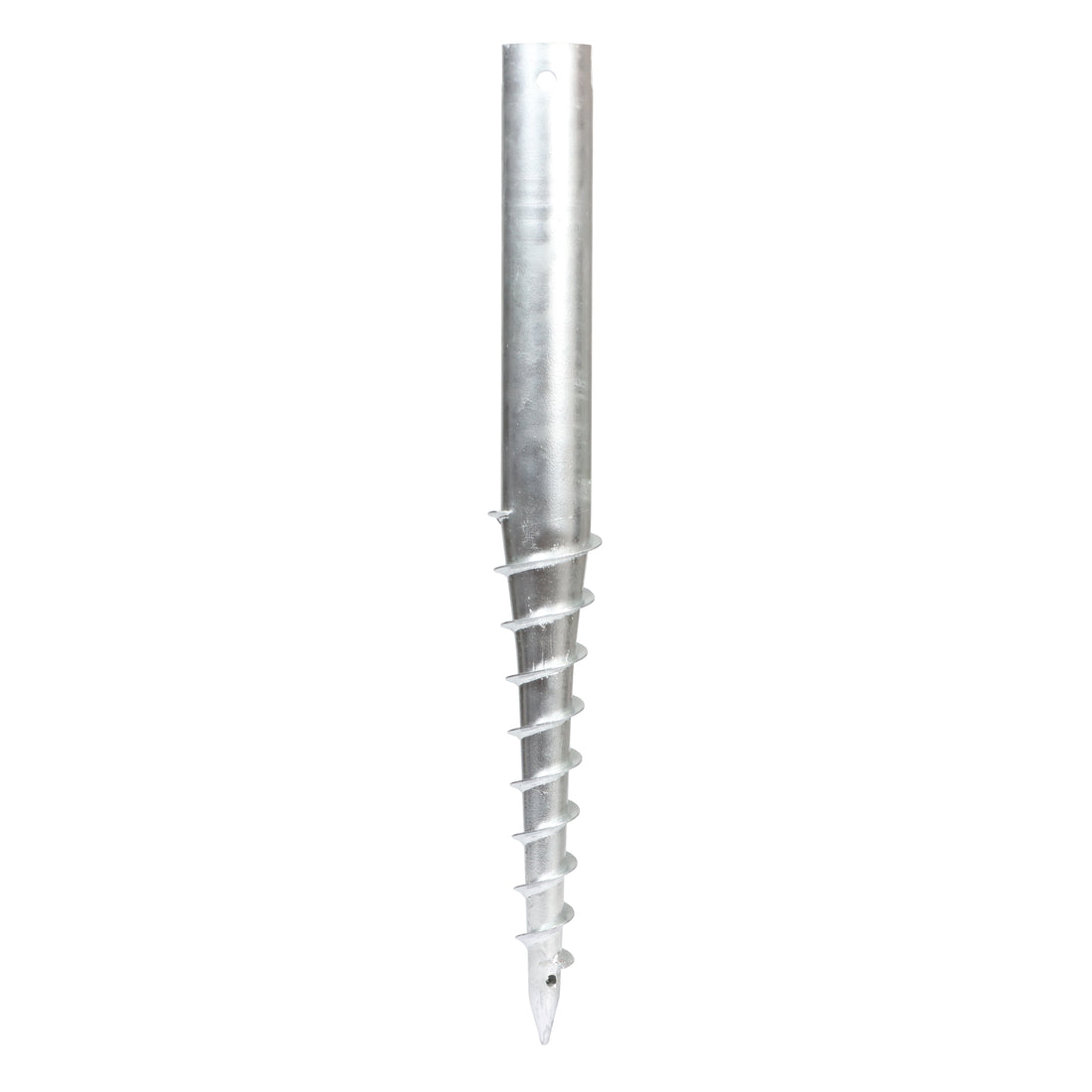When it comes to building structures, foundations are one of the most critical components. Traditionally, concrete has been the go-to material for building foundations, but it comes with a significant environmental cost. The production of concrete is responsible for a significant portion of global carbon dioxide (CO2) emissions, and its use can have a detrimental impact on the environment. This is where ground screws come in as an alternative foundation solution that is not only environmentally friendly but also more cost-effective.
Ground screws are a relatively new foundation technology that has been gaining popularity in recent years. They are made of steel and are screwed into the ground to create a solid foundation for structures. Compared to concrete, ground screws have a significantly lower carbon footprint. This is because they require far less energy to produce and install than concrete.
Concrete production is responsible for around 7% of global CO2 emissions, making it one of the largest sources of greenhouse gas emissions worldwide. In contrast, the production of ground screws has a much lower environmental impact. Steel production does produce CO2 emissions, but the overall impact of ground screw production is much lower than that of concrete.
Another advantage of ground screws is that they are reusable. Once a structure is no longer in use, the ground screws can be easily removed and used again for another project. This reduces the amount of waste generated by the construction industry and helps to create a more sustainable building process.
In addition to being environmentally friendly, ground screws also offer several other advantages over concrete. They are quicker to install, and they require less excavation than traditional foundations, which means that they are more cost-effective. This can help to reduce the overall cost of a construction project while still providing a stable foundation for the structure.
Furthermore, ground screws are more versatile than concrete foundations. They can be used in a variety of soil conditions and can be installed in areas with limited access. This makes them an ideal solution for projects in remote locations or areas with difficult terrain.
Finally, ground screws offer several additional benefits that concrete cannot match. They are not affected by changes in temperature or moisture, which means that they do not expand or contract over time. This helps to reduce the risk of cracks and other damage to the foundation, which can be a common problem with concrete foundations.
In conclusion, while concrete has long been the go-to material for building foundations, it comes with a significant environmental cost. Ground screws offer a more sustainable alternative that is not only environmentally friendly but also more cost-effective and versatile. With a lower carbon footprint, reusable materials, and quick installation, ground screws are a more sustainable choice for building foundations that can help to reduce the overall environmental impact of the construction industry.

